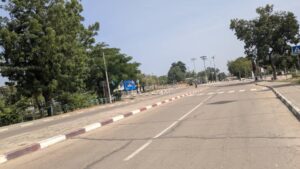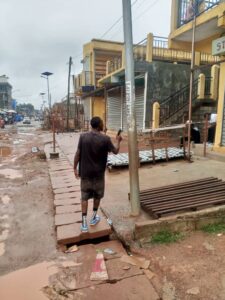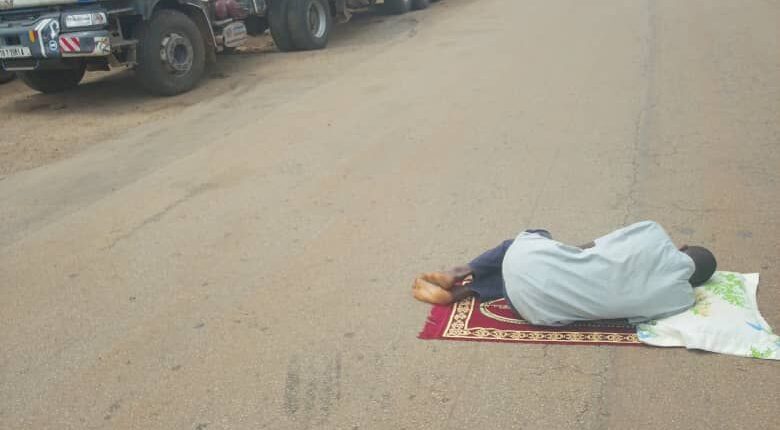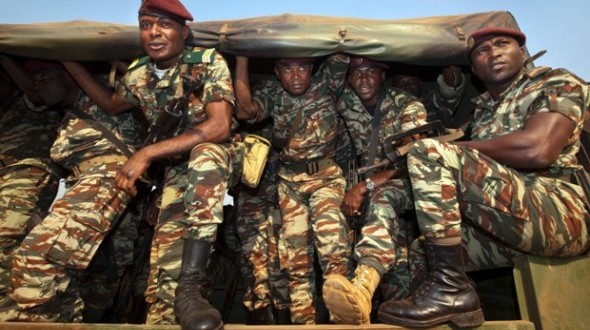In an unprecedented turn of events, the entire territory of La République du Cameroun was brought to a standstill on Monday as sporadic, spontaneous ghost towns gripped major towns and cities across the country. From Yaoundé to Douala, Garoua to Bertoua, and all the way to the restive cities of Bamenda and Buea, streets lay deserted, businesses remained shuttered, and public transportation ground to a halt.

The nationwide paralysis followed a call by Issa Tchiroma Bakary, one of the key contenders in the disputed October 12 presidential elections, who urged Cameroonians to engage in acts of civil disobedience against what he termed the “brutal theft of the people’s will”. His call for a nationwide shutdown was meant to send a strong message of resistance to the Biya regime, which he accuses of orchestrating large-scale electoral fraud.
The situation in the French-speaking regions was further compounded by the already-existing “Monday Ghost Town” ritual observed in Ambazonia—the English-speaking Northwest and Southwest regions—since 2017. For the past eight years, the people of Southern Cameroons have consistently observed every Monday as a day of peaceful resistance against the occupation and marginalisation imposed by the Yaoundé regime.

Yesterday’s ghost town, therefore, became a historic convergence of two struggles: the long-standing Ambazonian civil disobedience and the newly awakened Francophone resistance to tyranny. For the first time since the outbreak of the conflict in 2017, cities across both divides of the Mungo River stood united in silence—an unspoken message of defiance to the 42-year-old dictatorship of Paul Biya.
Economic analysts in Douala say the country lost billions of CFA francs in just one day, as key commercial hubs like Akwa, Bonaberi, and Mokolo were utterly deserted. Transport agencies and filling stations remained closed, while banks and government offices operated at skeletal levels or not at all. Reports from the northern regions also indicated massive compliance, with most traders in Maroua and Garoua refusing to open their shops out of fear of clashes with security forces.
In Yaoundé, the usually congested capital, police and gendarmes were deployed at strategic points, but their presence did little to restore normalcy. The few individuals who dared to defy the call were reportedly harassed and forced to close shop. In some neighbourhoods, residents were seen peeping through windows, describing the silence as “eerily similar to the Ambazonian ghost towns” they had once mocked.
For many observers, the widespread shutdown marks a turning point in Cameroon’s political trajectory. What began as a protest against marginalisation in the English-speaking regions appears to be resonating deeply among Francophones, who now feel the sting of political injustice firsthand.
“The people are tired. Whether in Bamenda or Ngaoundéré, we are all feeling the same pain now,” said one political analyst. “The regime has thrived on dividing the people for decades, but the stolen election seems to have united them in frustration.”
While the colonial regime in Yaoundé has yet to officially comment on the massive paralysis, insiders say authorities are panicking over the growing solidarity between Francophones and Ambazonians. Security sources have hinted at possible crackdowns in the coming days, as the regime seeks to reassert control over an increasingly rebellious population.
As the dust settles, one thing is sure: the ghost town that swept across Cameroon has shaken the foundations of the state. For the first time in decades, the regime’s machinery of fear seems to be losing its grip—replaced by a growing wave of civil awakening that transcends language, region, and ideology.
The message from the streets was loud and clear: Cameroonians, both Francophone and Ambazonian, have had enough of oppression and stolen democracy.
By Lucas Muma





